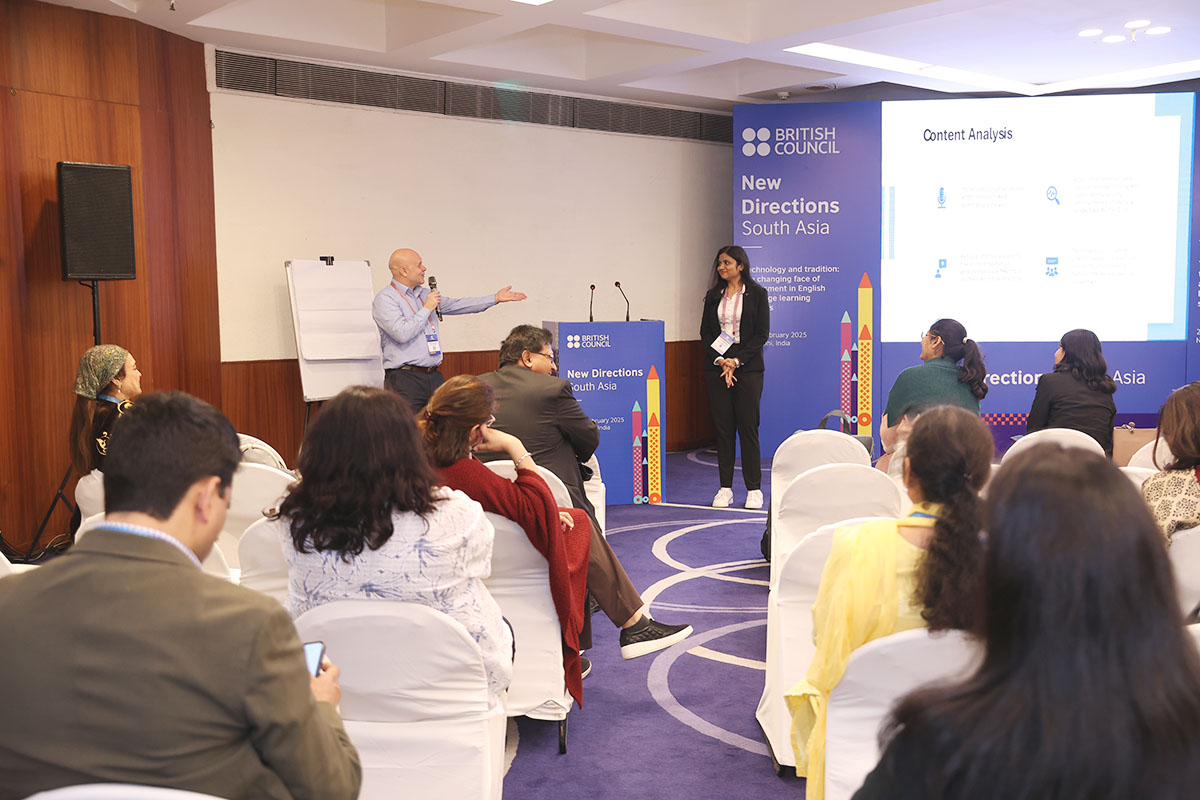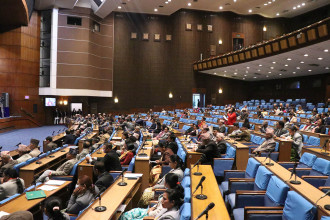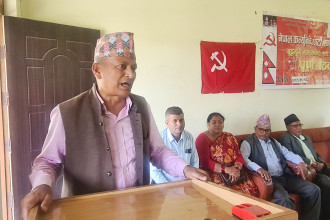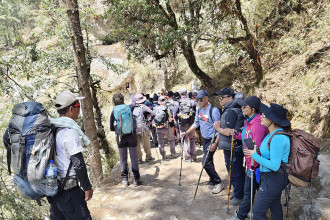
KATHMANDU: New Directions South Asia 2025, the British Council's flagship conference on language testing and assessment, made its South Asia debut on February 21, bringing together participants from Nepal, India, Bangladesh, Sri Lanka, and Pakistan. The two-day conference commenced with a ceremony featuring senior representatives from the British Council. Professor Barry O'Sullivan OBE, Director of English Language Research at the British Council, delivered the keynote address on the conference theme, 'Technology and tradition: The changing face of assessment in English language learning systems.'
English remains a vital global language, driving both functional needs and aspirational goals in education and career advancement worldwide. The British Council, with its expertise in delivering high-quality English language services and examinations, is well-positioned to support South Asia’s knowledge ambitions. The first-ever South Asian edition of New Directions marks a significant step towards addressing the growing importance of English language assessment in the region.
The conference brought together participants from across the region, offering a unique opportunity to address the evolving demands of multilingual and interconnected educational systems. Over the two days, regional and international leaders in education created a collaborative platform for policymakers, educators, academics, teachers, and assessment experts.
Rustom Mody, Country Director Nepal, British Council, said, "It was inspiring to see this landmark conference come to life, bringing together such diverse expertise from across the region and beyond to address the evolving landscape of English language assessment. By hosting New Directions in South Asia, we convened the region's thought leaders to shape the future of English language assessment, empowering the wider South Asian region to compete, collaborate and thrive on the world stage. With this, we continue to strengthen our mission of empowering learners, educators, and institutions to thrive in an increasingly multilingual and technology-driven world."
Professor Barry O’Sullivan OBE, Director of English Language Research at the British Council, said, "The launch of New Directions in South Asia marks a significant milestone in our journey of driving innovation in English language assessment worldwide. The rich discussions that unfolded here demonstrate how bringing together thought-leaders, educators, and policymakers under one roof creates meaningful dialogue on the intersection of technology and tradition. This collaborative platform ensures that our assessment practices continue to evolve in step with learners' needs in today's rapidly changing world."
Meanwhile, speaking on ‘Challenges and approaches in assessing language learning in young learners,’ Victoria Murphy, Professor of Applied Linguistics and Director of the Department of Education at the University of Oxford, shared, “The discussions at New Directions South Asia highlight our shared commitment to developing assessment approaches that respect young learners' developmental stages while preparing them for future success. By combining research-backed methodologies with emerging technologies, we can create assessment frameworks that are both rigorous and child-friendly, supporting the unique needs of young language learners across the region."
The conference, held over February 21-22, featured two plenary sessions, four panel discussions, and over 30 parallel sessions. Bringing together 250 individuals, the two-day event emphasised enhancing employability through English language skills, harnessing AI to revolutionise English education, implementing effective assessment strategies for young learners, and integrating English within diverse multilingual education contexts.
The discussions centred around four key strands:
- English for Employability: Addressing the role of English in employment and how assessment systems can meet employers’ needs.
- Artificial Intelligence (AI) in English Education: Exploring examples of AI applications in English language education, highlighting how planning and implementation consider these factors for effective use in assessment.
- Assessing Young Learners: Investigating all aspects of assessment and its crucial role in the holistic development and learning trajectory of young learners.
- The Role of English in Multilingual Education Contexts: Highlighting English language assessment policy and practice in multilingual education contexts.
In Nepal, the British Council hosted a parallel in-country session of *New Directions South Asia* on February 21 in collaboration with the Nepal English Language Teachers' Association. The event brought together key education stakeholders, including officials from the Ministry of Education, Science, and Technology, Tribhuvan University, Kathmandu University, and teacher educators.
Participants in Kathmandu engaged in group discussions on effectively assessing English language skills in a multilingual context, challenges in language assessment, and possible mitigation strategies, as well as the potential role of AI in language assessment. The session in Delhi was broadcast live in Kathmandu for in-country participants.
Dr Mahashram Sharma, Chairman of the National Examination Board, Nepal, along with the Undersecretary of the Department for Foreign Employment, attended the event in person in Delhi.
The British Council is the UK’s international organisation for cultural relations and educational opportunities.





-1745308675.jpg)
